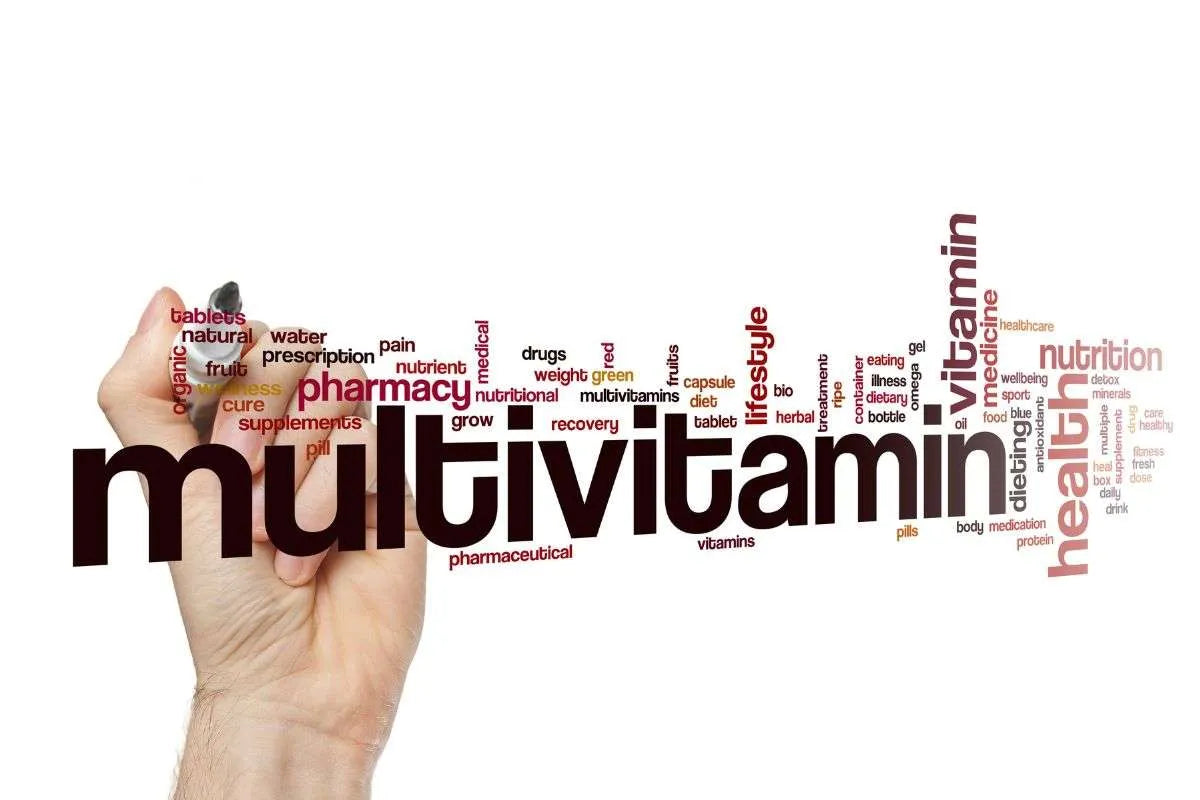TAP FOR WELLNESS

Top 10 Best Multivitamins in Pakistan (2024)
Why Are Multivitamins Important?
Our body requires many essential vitamins and minerals that are important for both body development and disease prevention. These vitamins and minerals are also referred to as micronutrients. These are not produced and synthesized naturally in the body, so they must be obtained from your diet. The amount of each nutrient required by your body depends on your age. Many foods in the grocery store are enriched with nutrients that are needed to prevent nutritional deficiency. A nutritional deficiency occurs when the body does not absorb or get from its diet the necessary amount of nutrients. Deficiencies can lead to a variety of serious health problems, including digestion problems, skin disorders, compromised, stunted, or defective bone growth, and even memory loss.
What are the uses of Multivitamins?
Multivitamins are available in many forms, including tablets, capsules, chewable gummies, powders, and liquids. Multivitamins and minerals are used as substitutes to provide substances that are not taken in adequately through the diet. They are also used to treat vitamin or mineral deficiencies caused by illness, pregnancy, poor nutrition, digestive disorders, certain medications, and other similar conditions. Multivitamin tablets contain many different vitamins, which are essential for the proper functioning of the body. However, an overdose of certain minerals can lead to serious, life-threatening consequences and should be strictly protected against. Vitamin A is necessary for skin, eye, and immune system health. Vitamin C is also essential for your immune system and collagen production. B vitamins are involved in energy metabolism and red blood cell production. Calcium, magnesium, vitamin D, and vitamin K are vital for bone health. Vitamin E and selenium are used as antioxidants that help protect your cells from damage. Magnesium and potassium regulate blood pressure, heart and muscle contraction, and cardiovascular health. Many multivitamin products also contain minerals such as iron, potassium, and zinc, which are also beneficial for your body.
Multivitamin tablets containing minerals in large doses and can cause side effects such as tooth staining, increased urination, stomach bleeding, an uneven heart rate, confusion, and muscle weakness or a limp feeling. Take care to use multivitamins from reputed brands and companies and pay attention to labels and fine print before purchasing any.
What does the use of Multivitamins look like Worldwide?
In recent years, the use of dietary supplements has increased worldwide. Pregnant women and elderly adults have different nutritional needs, requiring them to intake additional vitamins. The National Health Survey (NHS) recommends 10μg of vitamin D intake per day throughout pregnancy and breastfeeding, as well as 400μg of folic acid intake during the first trimester. Some women are advised to take iron, vitamin C, or calcium supplements during pregnancy, with varying dosages according to the individual. In a National Health and Nutrition Examination Survey, 52% of adults in the United States reported taking at least one dietary supplement for the past month, and 35% reported regular use of multivitamin-multimineral supplements.
What is the impact of Multivitamins?
Individuals who use multivitamin tablets are reported to have higher dietary nutrient intake and healthier diets. The best multivitamins and multimineral are the most commonly used supplements in the world.
What does the usage of Multivitamins look like in Pakistan?
In Pakistan, the usage of multivitamins varies across different demographic groups and regions. Urban areas exhibit higher usage rates due to better access to healthcare facilities and greater awareness about nutrition, whereas rural areas may see lower usage due to limited access and awareness. In Pakistan, the usage of multivitamins is crucial for addressing nutritional deficiencies, particularly among vulnerable populations such as pregnant women and children under two years old. With nearly 10 million Pakistani children suffering from stunting and only 38 percent of children exclusively breastfed for the first six months of life, there is a pressing need for interventions to improve nutritional outcomes. Additionally, more than half of children under five years of age are deficient in vitamin A, while 40 percent lack sufficient zinc and vitamin D, and nearly 62 percent are anemic. In response to these challenges, multivitamin supplementation programs, often containing essential nutrients like folic acid, iron, calcium, and vitamin D, are implemented. These efforts are critical for ensuring the health and development of both mothers and children, particularly in regions with limited access to nutritious foods and healthcare services. Through targeted distribution and education initiatives, organizations like UNICEF are working to mitigate the impact of malnutrition and improve overall health outcomes in Pakistan.
How to determine which Multivitamin is the best for your Health?
To determine if a multivitamin is one of the best for you:
- Check for a wide range of essential vitamins and minerals.
- Ensure quality ingredients that are easily absorbed.
- Consider the reputation of the company.
- Read customer reviews and recommendations.
- Consider any special dietary needs or health concerns.
- Consult a healthcare professional for personalized advice.
What are the top 10 best Multivitamins to use in 2024?
- Centrum
- Sparliv
- Vible
- Wellman
- One-A-Day
- Surbex Z
- CaC 1000 Plus
- Kalsob
- Vitamax
- SheVit
Get the Best quality multivitamins at MyPharmEvo.Pk.
Click now
For queries regarding your orders, please call 0333-1177350.
Ref:
https://www.ncbi.nlm.nih.gov/pmc/articles/PMC9482127/
